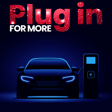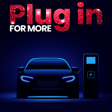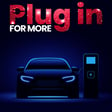
Solid State Batteries Are Here! - David Michery CEO of Mullen Automotive
Welcome to the Plug In For More podcast! Mike, Tom, and Bryant are here to help you on your journey to an Electric vehicle future. Each episode we discuss current events, trends, and a specific topic of education related to EV's. We bring together a diverse experience set, and pair it with guests who are experts in the field. For even more information on EV's, check out www.EVUniverse.com.
In this episode we about the implementation of Ford and Rivian to the Tesla NACS Supercharger network. Also, Tom gets a chance to speak with Mullen Automotive CEO David Michery about their exciting advancements in EV battery technology.
Be sure to follow PIFM on our various social media platforms, for more exciting content on EV’s
Instagram: https://www.instagram.com/pifm_podcast/
Facebook: https://www.facebook.com/PIFMPodcast
YouTube: https://www.youtube.com/channel/UCqXpv3fnOcv-robjLbDINFQ/featured


